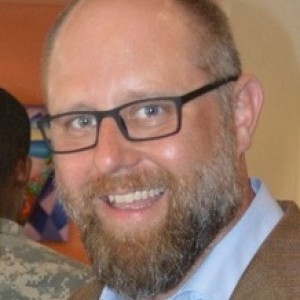Morality, Diversity, and Human Rights
My approach to teaching academic writing has been significantly influenced by my background in philosophy, a discipline that puts particular emphasis on critical inquiry and sound argumentation. The keystone concept bridging my disciplinary concerns and the transdisciplinary mandate of my Writing 101 (20) courses is that of 'deliberative discourse', which I generalize as a heuristic trope that connects the expectations of active class discussions regarding the conceptual content of particular courses and those of good scholarly research and writing in general.
The texts (and topics) that I choose for my writing courses are selected not only because they provide a rich conceptual basis for the intellectual work of my students but also because they provoke questions regarding basic epistemic assumptions and modes of thought that students generally take for granted. One of my central goals is to reveal to students the largely unconscious cognitive methodologies that characterize their own thought processes and, then, to accustom them to interrogating these methodologies, leading them to develop ever more sophisticated understandings of what constitutes strong intellectual engagement.
I employ series of "nested" writing assignments, which are linked to successive "units" in a given course. Early readings focus on basic concepts and issues related to the topic of the course, and students write short (2-3 page) "response" papers for every class meeting. These early reading responses serve four primary purposes: they force students to begin to ask certain sorts of questions as they read; they get students into the writing mode and keep them there, forcing them to produce quality written material at a rapid pace; they help to prompt engagement in class discussions; they provide me with a preliminary sense of each student as a writer. This initial stage in the course is figured as " p research" for the more complex writing assignments to come.
Generally, I assign three major "writing projects" (ranging from 4-6 to 7-10 pages) over the course of a semester. Typically, the first writing project asks students to amplify on some particular issue from one of their responses, developing these preliminary thoughts into a coherent essay that puts two or more of our readings into dialogue with one another. The second writing project, which follows more developed and complex readings reiterating earlier issues and themes, is paired with a library orientation session in which students gain familiarity with advanced research techniques. This second assignment requires both more sophisticated conceptual work and the skillful use of "outside" texts. Both the first and second writing projects go through three drafts. The first draft is followed by several days of in-class "workshopping," to model strong editing and revision practices. The second draft is followed by individual conferencing with students about their papers and the challenges--and successes--that they are encountering in their writing.
Whereas I tend to provide fairly robust comments on the drafts for these projects, in the third writing project I require students to take more personal initiative in moving through the editorial and drafting process. The whole-class workshop sessions are replaced with peer-partner workshopping that models the ways in which students can replicate our collective practices with classmates or friends in their work on future writing assignments in other classes. Similarly, in our individual conferences for the third project, I ask students to set the agenda for our meetings, to bring a copy of their second draft that has been "marked-up" in the sorts of ways that I have commented on their papers previously, and to explain to me the ways in which they see themselves moving forward toward a final draft. The idea, here, is to wean students off of any dependence on my direction, while simultaneously showing them how to transport the practices they have learned in my course to their future work as academic writers.
Finally, students turn in a portfolio of all of the drafts of all of their writing projects at the end of the semester. Reviewing these portfolios not only allows me to measure the various sorts of progress that the students have made but also to further inform my teaching by providing me with information such as which sorts of written comments best motivate and enable strong editing and revision by students.
